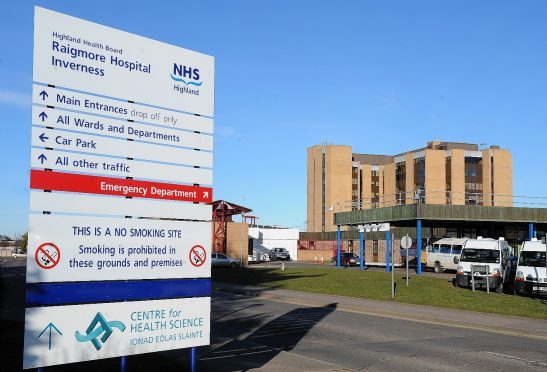A second ward has been closed at the Highlands’ main hospital due to norovirus.
Nine patients on Ward 7C at Raigmore in Inverness were affected yesterday.
The number affected on ward 2C, which closed on Saturday, had 19 patients affected.
Testing has confirmed that norovirus is present on both wards.
The virus, which causes diarrhoea and vomiting, spreads in the air where someone has had diarrhoea or vomited and is extremely infectious.
Health officials say it is important that everyone plays their part to reduce the risks of such an outbreak.
Dr Chin Lim, consultant microbiologist for NHS Highland, said: “By restricting visiting to the affected area it helps hospital staff protect the health, privacy and dignity of our patients.
“We would stress that people do not come to hospital to visit if they have, or live with someone who has, had any vomiting or diarrhoea within the previous 48hrs.
“To further help us limit the spread we would also ask that bringing children in to visit wards within the hospital is restricted as much as possible.
“Staff will, of course, be very happy to talk to visitors on the phone so they can get updates on how their relatives are.”
People intending to visit are also being urged to make such a call first and not to visit any of the affected wards unless by prior arrangement with the nurse in charge.
There is no specific treatment for a norovirus infection and it is not usually necessary to visit a doctor.
The best course of action is to stay at home, take paracetamol to relieve symptoms of any fever and to drink plenty of water to prevent dehydration. People should also adhere to strict hand washing techniques to reduce the spread of the virus.
The simple rules are: Do not visit a hospital if you or someone you live with has symptoms. If you have a hospital appointment get in touch and, where appropriate, your appointment can be rescheduled.
Wait until you have been clear of symptoms for 48 hours, as you may still be contagious, even if you feel well.
Wash your hands regularly with soap and water, especially after using the toilet and before eating.
If you visit someone in hospital, do not sit on their bed and keep the number of visitors to a minimum at any one time. Never touch dressings, drips, or other equipment around the bed.
